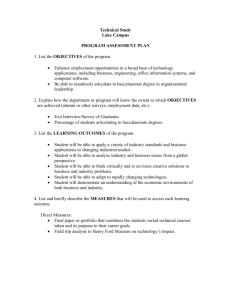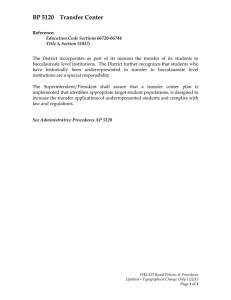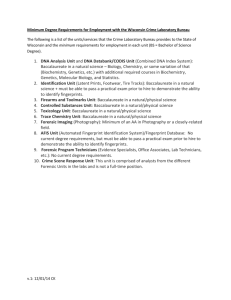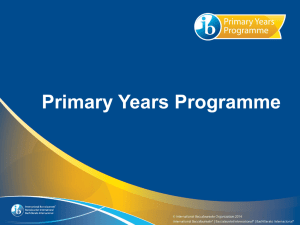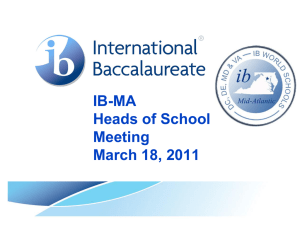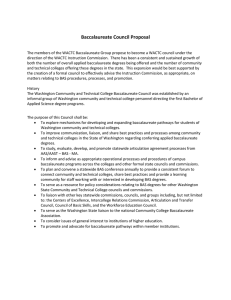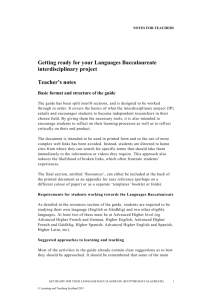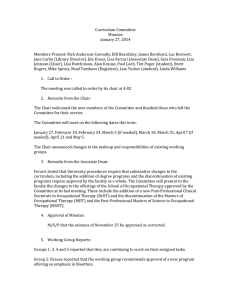1)Abertay University/Dundee Council/six Dundee schools
advertisement
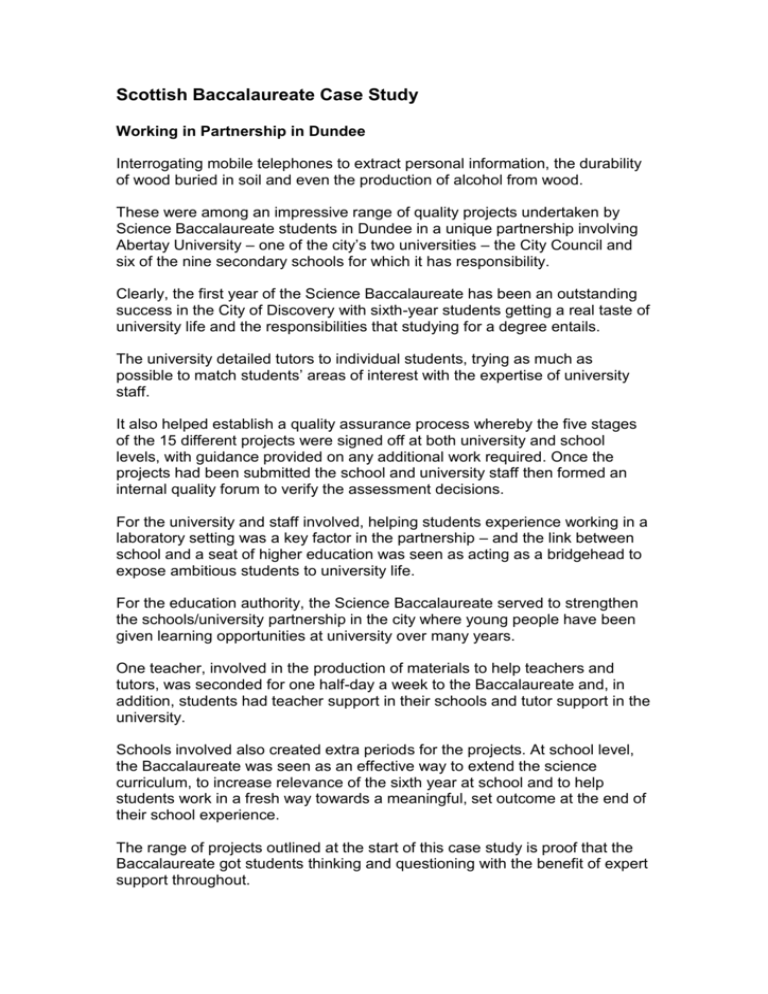
Scottish Baccalaureate Case Study Working in Partnership in Dundee Interrogating mobile telephones to extract personal information, the durability of wood buried in soil and even the production of alcohol from wood. These were among an impressive range of quality projects undertaken by Science Baccalaureate students in Dundee in a unique partnership involving Abertay University – one of the city’s two universities – the City Council and six of the nine secondary schools for which it has responsibility. Clearly, the first year of the Science Baccalaureate has been an outstanding success in the City of Discovery with sixth-year students getting a real taste of university life and the responsibilities that studying for a degree entails. The university detailed tutors to individual students, trying as much as possible to match students’ areas of interest with the expertise of university staff. It also helped establish a quality assurance process whereby the five stages of the 15 different projects were signed off at both university and school levels, with guidance provided on any additional work required. Once the projects had been submitted the school and university staff then formed an internal quality forum to verify the assessment decisions. For the university and staff involved, helping students experience working in a laboratory setting was a key factor in the partnership – and the link between school and a seat of higher education was seen as acting as a bridgehead to expose ambitious students to university life. For the education authority, the Science Baccalaureate served to strengthen the schools/university partnership in the city where young people have been given learning opportunities at university over many years. One teacher, involved in the production of materials to help teachers and tutors, was seconded for one half-day a week to the Baccalaureate and, in addition, students had teacher support in their schools and tutor support in the university. Schools involved also created extra periods for the projects. At school level, the Baccalaureate was seen as an effective way to extend the science curriculum, to increase relevance of the sixth year at school and to help students work in a fresh way towards a meaningful, set outcome at the end of their school experience. The range of projects outlined at the start of this case study is proof that the Baccalaureate got students thinking and questioning with the benefit of expert support throughout. Students involved believe the Baccalaureate model put greater onus on them acting with responsibility, thereby creating a boost in their confidence. All students were proud of their achievements and convinced that they were now better prepared for university life.
